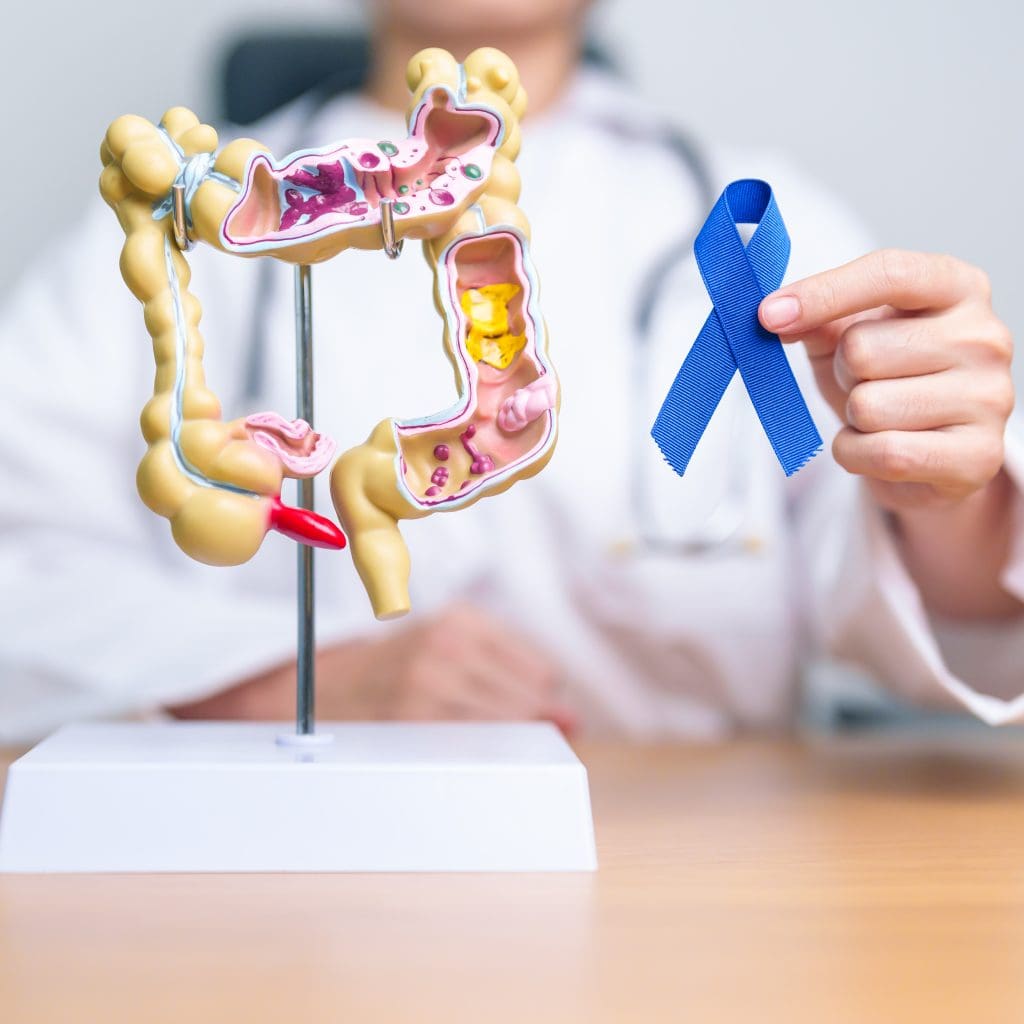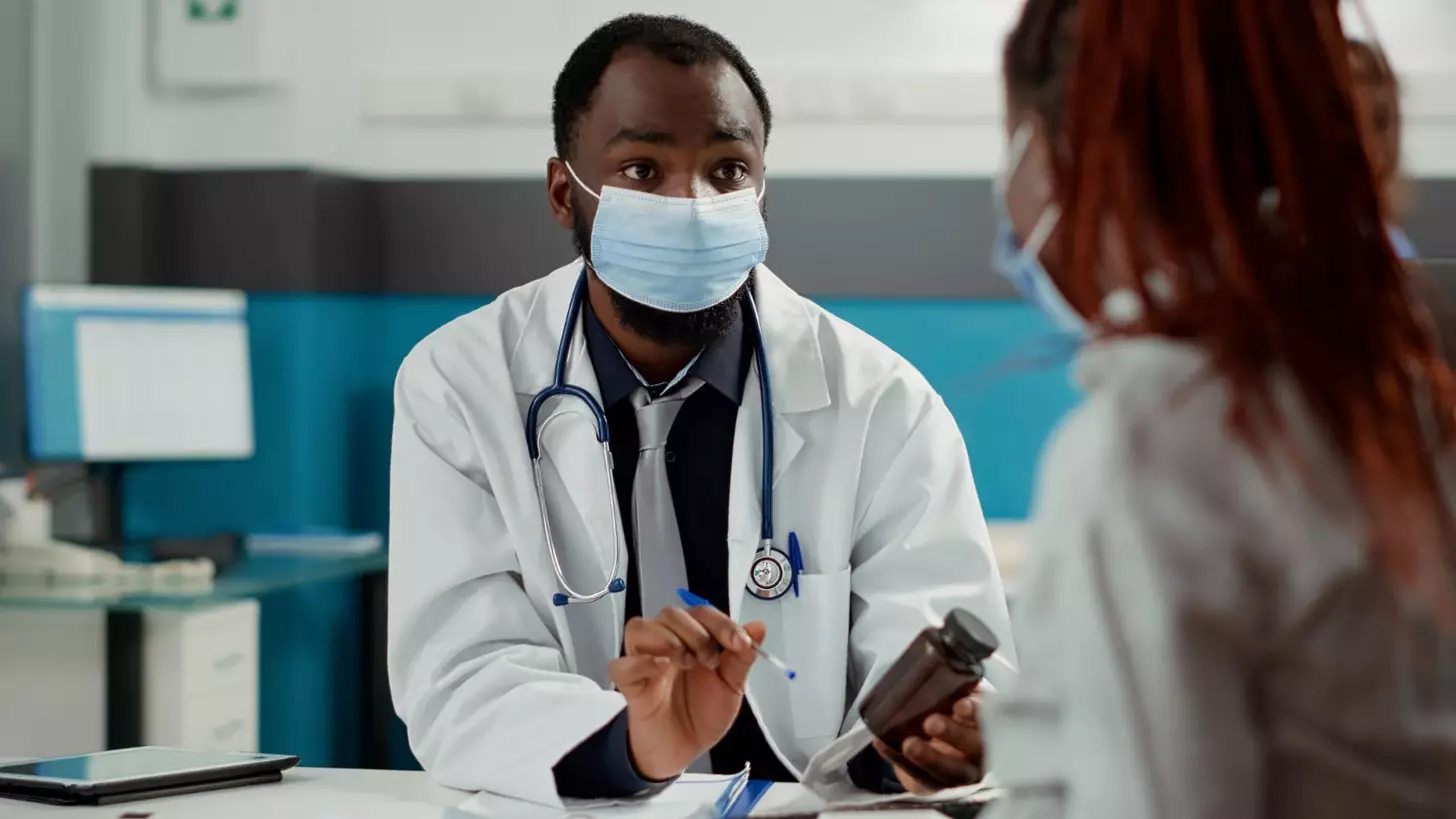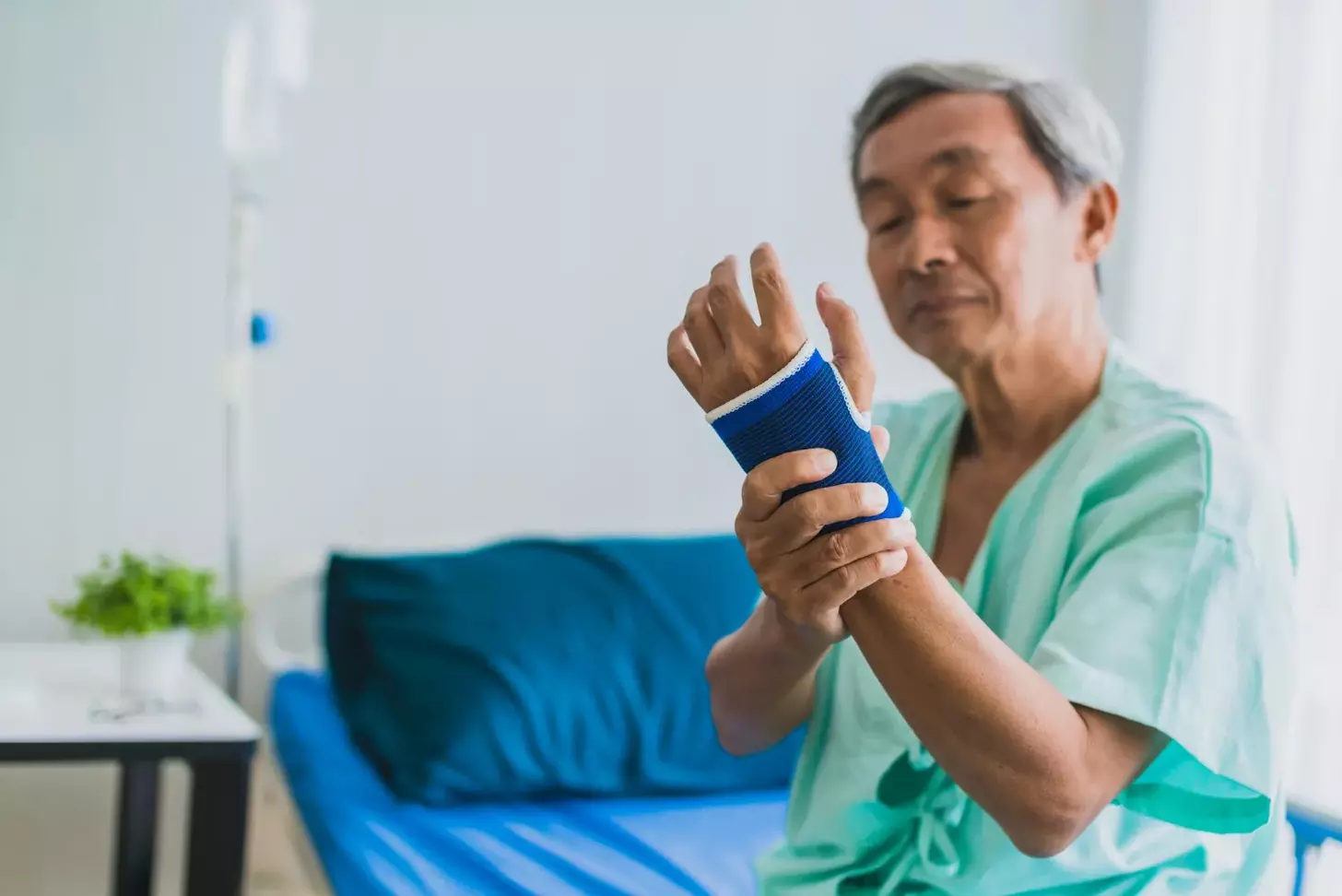Last Updated on November 27, 2025 by Bilal Hasdemir
Would I feel ill if I had colon cancer? Nearly 40% of adults will be diagnosed with colon cancer at some point in their lives. They often miss subtle symptoms that are easy to overlook.
A common symptom is feeling persistently tired or weak. This fatigue is more than just being tired. It’s a deep exhaustion that doesn’t get better with rest.
It’s important to spot colon cancer symptoms early for effective treatment. Knowing how it affects your overall health is key for getting medical help quickly.
Key Takeaways
- Colon cancer can cause a range of symptoms, including tiredness and weakness.
- Persistent fatigue is a common symptom that doesn’t improve with rest.
- Early recognition of symptoms is key for effective treatment.
- Understanding the impact of colon cancer on overall well-being is vital.
- Prompt medical attention can significantly improve treatment outcomes.

The Reality of Colon Cancer Symptoms
It’s key to know about colon cancer symptoms for early detection and treatment. Colon cancer often starts without symptoms, so regular screening is vital.
How Symptoms Develop
As colon cancer grows, symptoms can appear. These include changes in bowel habits like constipation or diarrhea. Some might feel unexplained digestive discomfort, like bloating and gas.
Why Some People Feel No Symptoms
Many with colon cancer don’t feel symptoms at first. This is because the tumor grows slowly. It doesn’t block or irritate the colon right away. So, regular screening is key for early detection.
The Importance of Regular Screening
Regular screening is essential for catching colon cancer early. Many people don’t show symptoms in the early stages. Screening can find the disease when it’s most treatable.
| Screening Method | Frequency | Benefits |
| Colonoscopy | Every 10 years for average-risk individuals | Can detect and remove polyps before they become cancerous |
| Fecal Occult Blood Test (FOBT) | Annually | Detects hidden blood in stool, which can be a sign of colon cancer |
| Stool DNA Test | Every 3 years | Detects genetic material from cancer cells in stool |
Understanding colon cancer symptoms and the need for regular screening helps. It’s a step towards early detection and treatment.
Early Warning Signs You Shouldn’t Ignore
Colon cancer often starts with small symptoms that are easy to miss. But catching them early is key. Paying attention to your body can help find cancer sooner and treat it better.
Subtle Changes in Bowel Habits
One early sign of colon cancer is changes in how you go to the bathroom. You might have diarrhea or constipation that doesn’t go away. Or you might feel like you didn’t finish going.
- Diarrhea or constipation that lasts for more than a few days
- Narrowing of the stool
- A feeling of urgency or discomfort during bowel movements
Unexplained Digestive Discomfort
Unexplained digestive discomfort, like bloating and stomach cramps, can also be a sign. These symptoms happen because a tumor can block or press on the area.
When Minor Symptoms Become Concerning
It’s important to know when to worry about these small symptoms. If you have abdominal discomfort that won’t go away or see blood in your stool, see a doctor. Finding cancer early can make a big difference.
Some signs you should see a doctor include:
- Persistent changes in bowel habits
- Unexplained weight loss
- Bloating or discomfort that doesn’t resolve
Colon Cancer Fatigue: Why It Happens and What It Feels Like
Fatigue is a common symptom in colon cancer patients. It feels like an overwhelming exhaustion. Unlike regular tiredness, this fatigue doesn’t go away with rest and can really affect daily life.
The Biological Causes of Cancer-Related Fatigue
Cancer-related fatigue comes from how the body reacts to cancer. The disease can make the body produce cytokines. These proteins make you feel tired and sick. Also, colon cancer can cause anemia, which lowers red blood cells and adds to the fatigue.
Distinguishing Normal Tiredness from Cancer Fatigue
Normal tiredness gets better with rest. But cancer fatigue keeps going, even after you’ve slept well. It can also be much worse, making it hard to do daily things and be with others.
How Fatigue Affects Daily Life
Colon cancer fatigue makes simple tasks hard. It can stop you from working, socializing, and enjoying hobbies. The constant tiredness can also cause emotional problems like depression and anxiety.
| Aspect of Daily Life | Impact of Colon Cancer Fatigue |
| Work and Productivity | Reduced ability to concentrate and perform tasks efficiently. |
| Social Interactions | Decreased participation in social events due to persistent tiredness. |
| Physical Activities | Reduced capacity for exercise and other physical activities. |
Digestive System Symptoms That May Signal Colon Cancer
The digestive system can react differently to colon cancer, showing various symptoms. It’s important to know these signs for early detection and treatment.
Changes in Stool Consistency and Frequency
Changes in bowel habits are a key sign of colon cancer. You might notice diarrhea, constipation, or feeling like you didn’t finish going. It’s vital to watch for these changes because they could mean there’s a tumor.
Persistent Abdominal Discomfort and Cramps
Long-lasting abdominal discomfort and cramps can be a sign of colon cancer. The tumor might cause these symptoms by blocking the bowel or irritating the lining. It’s important to tell the difference between normal digestive issues and symptoms that could be cancer.
Bloating and Gas That Won’t Resolve
Bloating and gas are common, but if they don’t go away and are paired with other symptoms, they could be a sign of colon cancer. The tumor can cause gas buildup or change digestion, leading to bloating.
Knowing how these digestive symptoms relate to colon cancer can help you get medical help early. Below is a table summarizing these symptoms:
| Symptom | Description | Potential Concern |
| Changes in Stool | Diarrhea, constipation, or feeling of incomplete evacuation | Colon Cancer |
| Abdominal Discomfort | Persistent cramps or pain | Cancer or bowel obstruction |
| Bloating and Gas | Persistent and uncomfortable bloating | Colon Cancer or digestive issues |
Blood in Stool: Understanding This Critical Warning Sign
Blood in stool is a serious symptom that needs quick attention. It can show up in different ways. While it’s not just about colon cancer, it’s a sign that you should see a doctor.
Different Appearances of Blood in Stool
Blood in stool can look different. It might be bright red or darker, making the stool look black. Sometimes, the blood is not seen at all, known as occult bleeding.
Other Conditions That Cause Rectal Bleeding
Colon cancer is a worry with rectal bleeding, but it’s not the only reason. Hemorrhoids, anal fissures, and inflammatory bowel disease can also cause it. Knowing the different causes helps doctors find the right diagnosis.
When to Seek Immediate Medical Attention
If you see blood in your stool, you should get medical help right away. Immediate action is required if the bleeding is heavy, you feel dizzy, or have severe stomach pain. Quick medical check-ups can find the cause and start the right treatment.
In summary, blood in stool is a symptom that can’t be ignored. It might mean colon cancer, but other issues can also cause it. Getting medical help fast is key to figuring out the cause and getting the right care.
Weight Loss and Appetite Changes: The Body’s Response to Cancer
Unexplained weight loss and changes in appetite can be signs of colon cancer. These symptoms happen because the body reacts to the growing cancer. This can change how the body uses energy and affect health.
Why Unexplained Weight Loss Occurs
Weight loss in colon cancer patients can happen for a few reasons. Cancer cells can make the body burn more calories, even without eating more. Also, cancer can make people feel less hungry, which adds to weight loss.
Loss of Appetite and Feeling Full Quickly
Many people with colon cancer don’t feel like eating. The disease can change how the body handles food. This can make people feel full after eating just a little bit. This might be because of where the tumor is or the body’s reaction to it.
Nutritional Challenges During Illness
People with colon cancer often face eating problems. The disease and treatment can make it hard for the body to get nutrients. It’s important to eat well to stay strong and help the body heal.
Nutritional Tips:
- Eat smaller, more frequent meals to manage loss of appetite.
- Choose nutrient-rich foods to maximize calorie and protein intake.
- Consider consulting a dietitian for personalized nutrition advice.
Anemia and Weakness: The Connection to Colon Cancer
Anemia is a common problem linked to colon cancer. It causes ongoing weakness and low energy. This happens because colon cancer can lead to chronic blood loss. This loss depletes the body’s iron, causing anemia.
How Colon Cancer Leads to Anemia
Colon cancer can cause anemia through bleeding in the digestive tract. As the tumor grows, it can damage blood vessels. This results in chronic blood loss, which depletes iron stores.
Iron is key for making hemoglobin, a protein in red blood cells. Hemoglobin carries oxygen to the body’s parts. Without enough iron, the body can’t make enough healthy red blood cells. This leads to anemia, making everyday tasks hard.
Recognizing Symptoms of Anemia
Anemia symptoms include persistent fatigue, weakness, and shortness of breath. Some people might feel dizzy, have headaches, or have cold hands and feet. These symptoms happen because the body can’t deliver enough oxygen.
- Fatigue and weakness
- Shortness of breath
- Dizziness or lightheadedness
- Cold hands and feet
The Impact of Low Energy on Quality of Life
Low energy from anemia can make daily life tough. Simple tasks become hard, and life quality drops. It’s important to manage anemia and its symptoms for those with colon cancer.
Understanding the link between colon cancer, anemia, and weakness helps. It allows for early medical action. This can improve outcomes and life quality.
Advanced Symptoms When Colon Cancer Progresses
Colon cancer getting worse often means more serious symptoms. This makes getting the right care very important. The disease can move to other parts of the body, causing many complex symptoms.
Signs That Cancer Has Spread Beyond the Colon
When colon cancer spreads, it can affect other organs. For example, liver cancer might turn your skin and eyes yellow. Lung cancer can cause breathing problems like shortness of breath or coughing.
Organ-Specific Symptoms
Symptoms can change based on where the cancer goes. For instance, bone cancer can hurt or even break bones. Brain cancer might cause headaches, dizziness, or seizures.
Managing Comfort in Advanced Stages
In the late stages, focusing on comfort and quality of life is key. This includes managing pain, supporting nutrition, and emotional care. Doctors and patients work together to create care plans that meet their needs.
| Symptom | Description | Management Strategy |
| Pain | Persistent pain due to tumor growth or metastasis | Pain medication, palliative care |
| Fatigue | Severe tiredness that interferes with daily activities | Rest, physical therapy, nutritional support |
| Nausea and Vomiting | Symptoms that can lead to dehydration and malnutrition | Antiemetic medication, dietary adjustments |
Risk Factors and Prevention Strategies
Understanding the risk factors for colon cancer is key to prevention and early detection. Some factors can raise the risk of getting colon cancer.
Who Is Most at Risk for Colon Cancer
Age is a big risk factor, with most cases happening in people over 50. Family history and genetics also matter a lot. If you have a family history of colon cancer or certain genetic syndromes, you’re at higher risk.
Lifestyle Changes That Reduce Risk
Living a healthy lifestyle can lower your risk of colon cancer. Eating a diet full of fruits, vegetables, and whole grains is important. Also, staying active, keeping a healthy weight, and not smoking are key.
| Lifestyle Change | Benefit |
| Diet rich in fruits and vegetables | Provides essential nutrients and fiber |
| Regular physical activity | Helps maintain a healthy weight and improves overall health |
Screening Guidelines by Age and Risk Level
Screening guidelines depend on age and risk level. Adults with average risk should start screening at 45. Those with a family history or other risk factors might need to start earlier.
Diagnosis Process: From Symptoms to Confirmation
Finding out if you have colon cancer is a detailed process. It involves many medical tests to confirm if cancer is present.
Initial Doctor’s Visit and Examination
If you think you might have colon cancer, see a doctor first. They will ask about your health and check you physically. This helps decide if more tests are needed.
Screening and Diagnostic Procedures
There are several screening and diagnostic procedures for colon cancer. These include:
- Colonoscopy: A way to see inside the colon and rectum.
- Biopsy: Taking a tissue sample for lab tests.
- Imaging tests: Like CT scans, MRI, and PET scans to see how far the cancer has spread.
- Stool tests: To find hidden blood or abnormal DNA in your stool.
Understanding Your Test Results
After the tests, your doctor will talk about the test results with you. If you have colon cancer, they will tell you the cancer stage. This is important for planning your treatment.
It’s key to talk to your doctor about what your test results mean. They will guide you on what to do next for your health.
Conclusion: Taking Action for Your Health
Knowing the early signs of colon cancer is key to catching it early. By noticing changes in bowel habits and feeling unwell, you can act fast. This helps protect your health.
Preventing colon cancer is also important. Making lifestyle changes and getting regular screenings can help. Following screening guidelines based on your age and risk can catch problems early.
It’s not just about knowing the signs. It’s also about making smart health choices. By being aware of symptoms and following prevention steps, you can greatly improve your health.
Early detection and prevention are vital in fighting colon cancer. So, take action now to ensure a healthier future.
FAQ
What are the early warning signs of colon cancer?
Early signs of colon cancer include changes in bowel habits. This can be diarrhea or constipation that lasts. You might also feel bloated or have stomach cramps. Seeing blood in your stool is another warning sign.
How does colon cancer cause fatigue?
The body’s response to cancer leads to a tiredness that doesn’t go away with rest. This tiredness makes daily tasks hard to do.
What are the digestive system symptoms that may indicate colon cancer?
Symptoms include changes in how often you go to the bathroom. You might also feel uncomfortable in your stomach or feel bloated.
Is blood in stool always a sign of colon cancer?
Blood in stool is a big warning sign, but it’s not the only cause. Other health issues can also make you bleed.
How does colon cancer lead to weight loss and appetite changes?
Losing weight without trying is a sign of colon cancer. You might also feel full quickly or lose your appetite.
What is the connection between colon cancer, anemia, and weakness?
Colon cancer can cause anemia from blood loss. This leads to feeling weak and tired. Spotting anemia symptoms is key to getting help early.
What are the advanced symptoms of colon cancer?
Advanced symptoms include signs the cancer has spread. You might also have specific symptoms for different organs. Managing your comfort becomes important.
Who is most at risk for colon cancer?
Some people are at higher risk, like those with a family history. Certain genetic syndromes also increase risk. Making lifestyle changes and getting screened can help.
How is colon cancer diagnosed?
Doctors start with a medical history and physical exam. Then, they use tests like screenings and diagnostic procedures to find the cancer.
What are the screening guidelines for colon cancer?
Screening rules depend on your age and risk level. Knowing these guidelines helps you get checked early and lower your risk.
Can colon cancer be prevented?
While you can’t prevent all cases, healthy living and screenings can help. Eating right and exercising regularly can reduce your risk.
How does colon cancer affect daily life?
Colon cancer can make you tired, weak, and change your bowel habits. Managing these symptoms is key to a good quality of life.
What are the symptoms of colon cancer that should not be ignored?
Don’t ignore symptoms like persistent stomach pain, bloating, changes in bowel habits, blood in stool, and unexplained weight loss.
Is it normal to feel weak with colon cancer?
Yes, feeling weak is common with colon cancer. It’s often due to anemia from blood loss.
Can colon cancer cause persistent nausea?
Yes, colon cancer can make you feel nauseous. You might also lose your appetite or feel full quickly.
What is general malaise in colon cancer?
General malaise means feeling unwell. It includes feeling tired, weak, and lacking energy.






